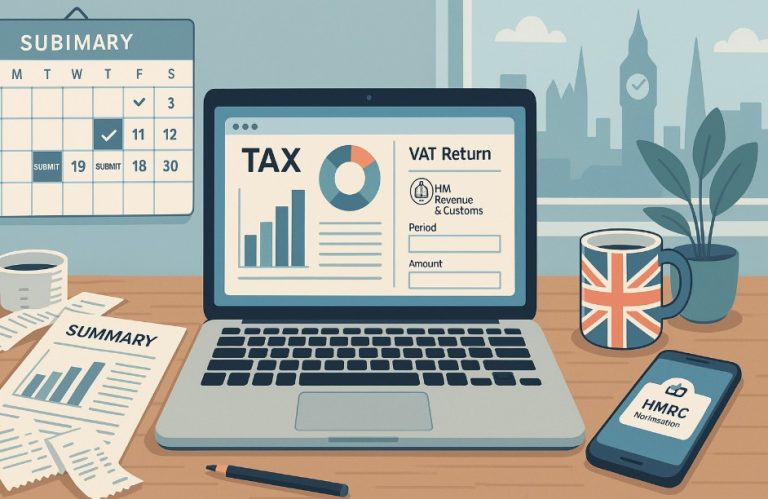How to File Accounts with Companies House?
Filing accounts with Companies House is one of the most critical responsibilities of running a company in the UK. These filings serve not only as a compliance measure but also as a reflection of a company’s financial position and operational transparency.
Whether your business is actively trading, temporarily dormant, or operating as a micro-entity, the legal obligation to submit accounts annually remains unchanged.
Understanding the process, knowing your filing deadlines, and preparing the correct type of accounts can help you avoid penalties, safeguard your company’s reputation, and maintain investor trust.
This guide explores every aspect of the filing process, from understanding what annual accounts are to knowing how and when to file them.
Why Must Companies File Accounts with Companies House?

Every limited company incorporated in the UK must file its annual accounts with Companies House. These accounts are used to keep public records up to date and to ensure that businesses are operating transparently and in line with UK law.
This requirement exists even if the company has not traded during the financial year.
Filing timely and accurate accounts is not just about avoiding penalties it also demonstrates professionalism, financial health, and reliability to potential investors, banks, and customers.
On the other hand, non-compliance can severely damage a company’s reputation and invite further regulatory scrutiny.
What Are Annual Accounts?
Annual accounts, also referred to as statutory accounts, provide a detailed summary of a company’s financial performance over the past 12 months.
These accounts are mandatory and must meet specific regulatory standards, such as UK GAAP (Generally Accepted Accounting Principles) or IFRS (International Financial Reporting Standards), depending on the company’s size and structure.
Key Components of Annual Accounts
Annual accounts must be a true and fair representation of a company’s financial health. Depending on the company’s size and status, the accounts may include some or all of the following:
| Component | Description |
| Balance Sheet | A snapshot of the company’s assets, liabilities, and equity. |
| Profit and Loss Account | Outlines income and expenses, providing insight into business profitability. |
| Notes to the Accounts | Clarify or expand on figures, including explanations for anomalies or specific financial events. |
| Director’s Report | Required for medium and large companies, summarising performance, risk, and strategic direction. |
| Auditor’s Report | Required for large companies and some medium-sized entities, offering an independent review of financial records. |
These reports must be formatted according to official guidance and submitted accurately to meet Companies House requirements.
What Are the Different Types of Company Accounts?

The type of accounts you must file depends on the size and trading status of your company. The UK recognises several categories based on financial thresholds and employee headcount.
Understanding these categories ensures you submit the correct form of accounts.
Company Size Classifications
| Company Size | Turnover | Balance Sheet Total | Employees |
| Micro-Entity | ≤ £632,000 | ≤ £316,000 | ≤ 10 |
| Small Company | ≤ £10.2 million | ≤ £5.1 million | ≤ 50 |
| Medium Company | ≤ £36 million | ≤ £18 million | ≤ 250 |
| Large Company | Over these thresholds | Over these thresholds | Over 250 |
Account Types
- Micro-Entity Accounts: Require the fewest disclosures and often do not need a profit and loss account or director’s report.
- Dormant Company Accounts: Applicable to companies that have had no significant financial transactions during the financial year.
- Abridged Accounts: Available to small companies, combining elements of the balance sheet and reduced reporting requirements.
- Full Statutory Accounts: Required for medium and large companies. These are comprehensive and include all major financial statements and disclosures.
Submitting the wrong type of accounts can lead to rejection, delays, or penalties, so careful classification is crucial.
Filing Deadlines for Companies House

Meeting deadlines is essential to avoid penalties. The deadline depends on whether you’re submitting your first accounts or your regular annual submission.
Standard Filing Deadlines
| Filing Scenario | Deadline |
| First Accounts | 21 months after incorporation |
| Subsequent Annual Accounts | 9 months after the end of the financial year |
For example, if your financial year ends on 31 December, your accounts must be filed by 30 September of the following year.
It is important to note that Companies House strictly enforces deadlines. Missing by even a day results in automatic penalties.
What Happens If You Miss the Deadline?
Failing to file accounts on time triggers a system of escalating penalties. These are automatic and apply regardless of the reason for the delay.
Late Filing Penalties (Private Limited Companies)
| Delay Period | Penalty Amount |
| Up to 1 month | £150 |
| 1 to 3 months | £375 |
| 3 to 6 months | £750 |
| More than 6 months | £1,500 |
If you file late for two years in a row, the penalty amount is doubled. Apart from financial penalties, late filings can lead to:
- Public disclosure of non-compliance
- Damage to your business’s credit rating
- Strike-off action by Companies House
- Legal action against directors
Can Penalties Be Appealed?
Yes, but only in specific circumstances, such as:
- Serious illness or bereavement
- Natural disasters
- Verified postal issues
- Technical problems with Companies House systems
Appeals must be made in writing and supported with evidence. Common reasons like “I didn’t know the deadline” or “My accountant was busy” are not accepted.
How to File Company Accounts?: A Step-by-Step Guide
Preparing and filing accounts can seem daunting, especially for new business owners. However, with a structured approach, the process becomes manageable.
Step 1: Prepare Your Financial Records

Ensure that your records are complete and accurate. This includes:
- All invoices and receipts
- Payroll and pension contributions
- Bank statements and reconciliations
- Business expenses and allowances
- Any relevant notes or documentation of financial changes
Maintaining well-organised records throughout the year makes this step significantly easier.
Step 2: Log In to the Companies House Portal

To file online, you must access the Companies House WebFiling system. You’ll need:
- Your company registration number
- Your authentication code (a security code issued upon registration)
If you’ve lost your code, request a new one in advance. It may take up to 5 working days to arrive.
Step 3: Choose the Correct Type of Accounts

Select the appropriate account category based on your company’s size and activity. Misclassification may result in your submission being rejected.
Step 4: Upload and Submit

Fill out the online forms or upload PDFs generated by your accounting software. Double-check all entries for accuracy before submitting. Errors can delay approval and increase the risk of fines.
Step 5: Save Your Confirmation
After submission, you’ll receive a confirmation email. Save this and keep a copy of the filed accounts for your records. You may need them for tax returns or investor reviews.
Filing Methods: Which Should You Choose?
Companies House accepts filings via three main methods:
| Method | Advantages | Disadvantages |
| Online Filing | Fast, secure, instant confirmation | Requires an authentication code |
| Postal Filing | Suitable for physical documents | Risk of postal delays, no instant proof |
| Accounting Software | Streamlined, auto-generated reports | Subscription or training may be needed |
Online filing is generally preferred, especially when integrated with software like Xero or QuickBooks. These platforms can automate much of the process and reduce human error.
Who Else Needs a Copy of Your Company Accounts?
Besides Companies House, your accounts must also be shared with:
- HMRC: Required for calculating and paying Corporation Tax.
- Shareholders: Entitled to view the financial position of the business.
- Banks and Investors: Often request accounts before extending loans or investments.
Ensuring that all stakeholders receive accurate and timely information helps build trust and fosters stronger business relationships.
Requirements for Dormant and Micro-Entity Companies
Companies that are either dormant or categorised as micro-entities benefit from simplified filing requirements, though they still must meet annual obligations.
Dormant Companies
A company is considered dormant if it has had no significant accounting transactions during the financial year.
Dormant companies must file:
- A balance sheet confirming the company is dormant
- An annual confirmation statement detailing officers and the registered office
They do not need to submit profit and loss accounts unless they become active.
Micro-Entities
Micro-entities must meet at least two of the following criteria:
- Turnover under £632,000
- Assets under £316,000
- Fewer than 10 employees
These companies can file simplified accounts that exclude detailed disclosures and allow exemptions from audits and directors’ reports.
Tips for First-Time Filers

Filing accounts for the first time can be stressful. However, a few practical steps can ease the process:
- Understand your accounting obligations early in the financial year
- Keep detailed records from day one
- Use trusted accounting software or work with a certified accountant
- Know your deadlines and plan to submit well in advance
- Ensure accounts are complete and formatted correctly
- Avoid leaving the submission until the last few days
Being proactive reduces the risk of last-minute errors and ensures compliance.
Common Filing Mistakes to Avoid
Many penalties and issues arise from simple oversights. The most common mistakes include:
| Mistake | Consequence |
| Filing late | Immediate fines and public record |
| Submitting the wrong account type | Rejection and delays |
| Incomplete information | Returned filings |
| Failing to file dormant accounts | Same penalties as active companies |
| Ignoring formatting requirements | Invalidation of submissions |
Avoiding these pitfalls requires awareness, planning, and a clear understanding of your legal responsibilities.
What Is the Role of Companies House in Business Compliance?
How Does Companies House Ensure Transparency?
Companies House plays a central role in maintaining the public record of all limited companies registered in the UK.
By requiring companies to submit annual accounts and confirmation statements, it helps uphold transparency and accountability in the UK’s business environment.
Why is Companies House Important for Stakeholders?
The financial data held by Companies House is accessible to the public. This allows investors, lenders, customers, and suppliers to assess a company’s financial stability before entering into contracts or agreements.
What Are Confirmation Statements and How Do They Differ from Accounts?

What is a Confirmation Statement?
A confirmation statement (formerly the annual return) is a separate filing requirement that verifies basic company information, such as directors, registered office address, and shareholding structure.
How is It Different From Annual Accounts?
While annual accounts report the financial activity and health of a business, confirmation statements confirm the legal and structural details. Submitting one does not replace the other; both must be filed annually.
What Are the Benefits of Timely Filing with Companies House?
How Does It Affect Your Company’s Credibility?
Timely and accurate filings project a professional image and enhance your reputation with stakeholders. It signals to the market that your business is well managed and legally compliant.
Can Timely Filings Improve Funding Opportunities?
Yes, up-to-date public records make it easier for your business to secure loans, attract investment, or enter into partnerships. Many lenders and investors check Companies House records before making decisions.
What Support Is Available for Filing Accounts as a Small Business?
Are There Free Resources for Small Businesses?
Companies House provides a wide range of support materials, including online tutorials, step-by-step guidance, and downloadable templates to help small businesses prepare their accounts.
Should You Hire an Accountant or Use Software?
For many small businesses, investing in accounting software or hiring an accountant can save time, reduce errors, and ensure compliance. The decision often depends on the complexity of your accounts and your internal resources.
Conclusion: Staying Compliant with Companies House
Filing accounts with Companies House is not merely a statutory duty, it’s a demonstration of your company’s commitment to legal and financial transparency.
Whether you run a micro-entity, a dormant business, or a growing SME, submitting timely and accurate annual accounts ensures your company remains in good standing.
By understanding the requirements, preparing well in advance, and choosing the right filing method, businesses can meet deadlines without stress and avoid unnecessary penalties.
As your company grows, your filing obligations may become more complex. Stay informed, remain organised, and seek professional help when needed.
FAQ
Do sole traders need to file accounts with Companies House?
No, sole traders do not need to file accounts with Companies House. This requirement only applies to registered limited companies.
What is an authentication code and how do I get one?
An authentication code is a unique 6-character code used to access the Companies House WebFiling service. It is sent to your company’s registered office upon incorporation or can be requested online.
Can I amend accounts after they’ve been filed?
Yes, you can file amended accounts if errors are discovered after submission. You must clearly label them as “amended” and submit a full corrected set.
Is there a fee to file accounts with Companies House?
There is no fee for filing most company accounts online. However, some paper submissions may carry a small charge.
Can I file abbreviated accounts?
Abbreviated accounts are no longer accepted. Instead, small companies can prepare abridged accounts or micro-entity accounts, depending on their eligibility.
What happens if my accounting reference date (ARD) is incorrect?
You can change your ARD by filing the appropriate form with Companies House, but this may affect your deadlines, so plan carefully before making changes.
How do I know what format my accounts should be in?
Companies House provides formatting guidelines. Most companies submit in iXBRL or PDF formats, especially if using accounting software.
Are paper filings slower than online submissions?
Yes, paper filings take longer to process and have a higher risk of errors or delays. Online filing is faster and more reliable.
Can I file joint accounts with HMRC and Companies House?
No, you must file separately. Companies House and HMRC have different requirements, even though the financial data may overlap.
What support is available for non-accountants?
You can use online software tools, government resources, or hire a professional accountant. Companies House also offers detailed guides and help videos.
Will late filing affect my credit rating?
Yes, frequent or late filings are recorded on the public register and may negatively impact your credit profile, investor trust, and supplier confidence.







